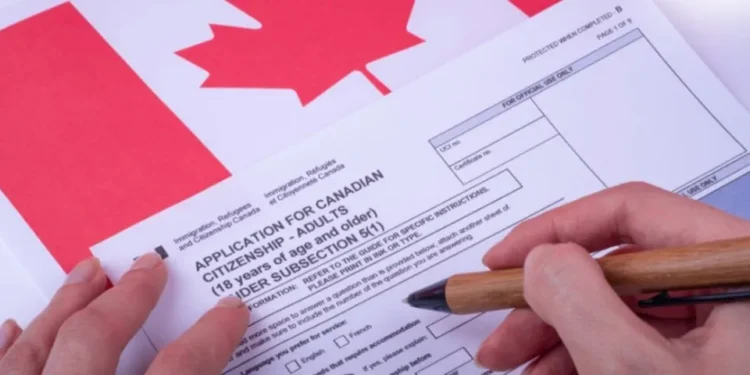
Canada is a popular choice for immigrants, thanks to the many opportunities it offers, along with the global mobility that comes with a Canadian passport. With a Canadian passport, individuals can travel to over 180 countries without a visa or with a visa on arrival, making it one of the most powerful passports in the world. Although the process of moving from permanent residency (PR) to citizenship is clearly outlined by Canadian authorities, some applications may still be rejected due to missed requirements or mistakes.
Related Stories Canada’s immigration backlog hits 1.1 million, causing widespread delays Canadian Diploma programs to open pathways to high-demand jobs in 2025 Based on Immigration News Canada, below are the top 10 reasons Canadian citizenship applications are rejected and how to avoid these common mistakes. One of the most common reasons for rejection is submitting incomplete or incorrect forms.

The citizenship application process involves a detailed set of forms that must be filled out accurately. Missing information or mistakes on the forms can result in a rejection. One is to carefully review all forms to ensure every section is completed correctly.
It’s essential that all information is consistent across forms and supporting documents. If you’re unsure, consider seeking help from an immigration consultant or lawyer. To be eligible for Canadian citizenship, applicants must have lived in Canada for at least 1,095 days (three years) within the five years before submitting their application.
INC reports that many applicants fail to meet this requirement, often because they miscalculate their time in Canada or don’t account for short trips outside the country. Use the residency calculator available on the Immigration, Refugees, and Citizenship Canada (IRCC) website to track your days in Canada. Keep detailed records of your travels, and ensure you’ve met the residency requirement before applying.
Applicants aged 18 to 54 are required to demonstrate proficiency in either English or French, Canada’s official languages. Language skills are essential for integrating into Canadian society, and failure to meet the required language standard can lead to rejection. Take an approved language test, such as IELTS or CELPIP for English, or TEF for French.
Make sure to submit valid and current test results with your application. Applicants with a criminal record, especially for serious offenses, may be deemed inadmissible to Canada. All applicants must submit police clearance certificates for every country where they have lived for more than six months.
If you have a criminal record, be honest and provide all necessary documents. If you’ve had minor convictions, check if you’re eligible to apply after a waiting period or if you need to resolve any ongoing legal issues before applying. Not listing all family members—such as spouses, children, or stepchildren—on your application can lead to rejection.
This includes family members who may not be accompanying you to Canada. Ensure you list every family member in your application, regardless of whether they are joining you in Canada. Misrepresentation can result in severe consequences, including a ban from applying in the future.
To be eligible for citizenship, applicants must have filed taxes for at least three of the five years preceding their application. Failure to meet this requirement can result in rejection. Make sure you have filed your taxes for the required period.
If you’ve missed filing taxes in previous years, it’s essential to file retroactively before applying for citizenship. Providing false information or documents is a serious offense that can result in the rejection of your application and possible legal consequences. Always be truthful in your application.
Double-check your information and documents to ensure their accuracy. If you’ve made a mistake in a previous application, address it transparently. Applicants must maintain their permanent resident (PR) status throughout the citizenship process.
If your PR status is revoked, your citizenship application will be void. Ensure you meet the residency obligations required to maintain your PR status. Avoid long absences from Canada that could jeopardize your status and application.
A prior rejection for citizenship or permanent residency can affect future applications. If past issues haven’t been addressed properly, they can result in further rejections. If you have been rejected in the past, carefully review the reasons for the rejection and ensure that all issues are corrected before reapplying.
Consulting with a legal expert can help you address these concerns effectively. Applicants aged 18 to 54 are required to pass a citizenship test covering Canadian history, values, institutions, and responsibilities. Failing this test will lead to rejection, INC reports.
Use the official study guides and practice tests provided by IRCC to prepare for the test. If you fail, you may have a second chance, so it’s important to study thoroughly for your next attempt. According to INC, if your application is rejected, you can appeal the decision if you think it was unfair.
Working with an immigration lawyer can help you navigate the appeal process and improve your chances of success. By following these tips and avoiding common errors, you can greatly increase your chances of getting Canadian citizenship..














